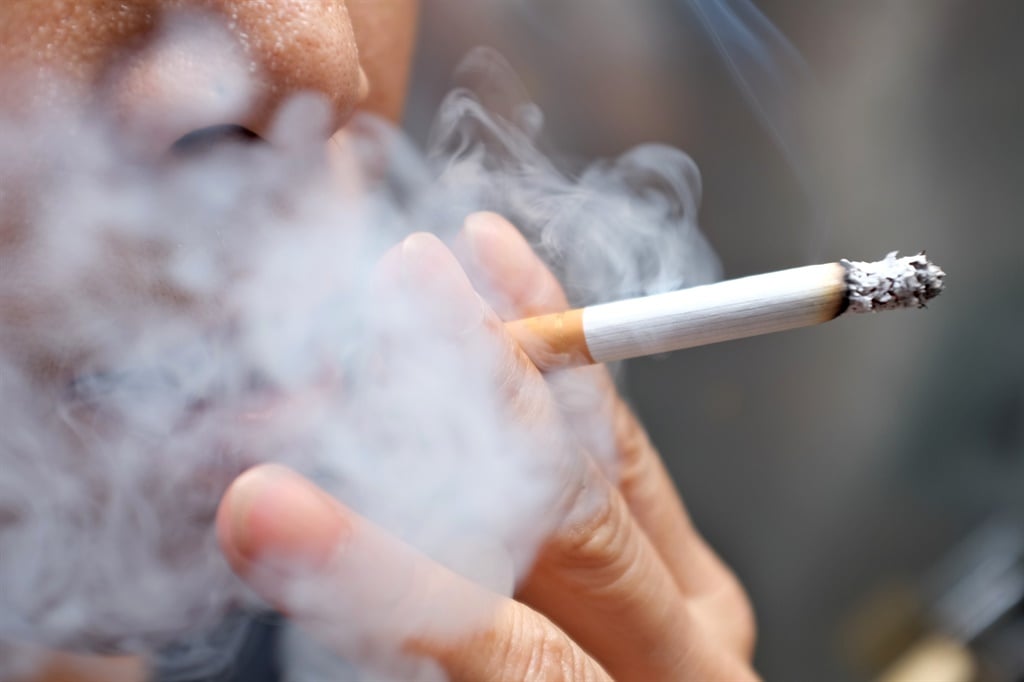
Xoliswa* was worried when she discovered that her 16-year-old son was smoking cigarettes which were easily accessible to him. The 40-year-old mother from Johannesburg is one of the parents who cannot wait for the Tobacco Products and Electronic Delivery Systems Bill to be passed into law.
The new legislation seeks to change where people can smoke and how cigarettes are packaged. If it becomes law, indoor smoking – even in your home or in the car in the presence of a child or a non-smoker – will be illegal.
READ: Experts bemoan binge drinking after Limpopo man dies from downing a bottle of Jägermeister
According to Dr Catherine Egbe, a specialist scientist at the Alcohol, Tobacco and Other Drug Research Unit at the SA Medical Research Council, the new legislation will:
. Remove designated smoking areas so there can be 100% smoke-free indoor public places and in certain outdoor spaces;
. Stop the sale of cigarettes via vending machines;
. Stop point-of-sale advertising of tobacco and electronic cigarettes; and
. Introduce plain packaging with graphic health warnings of these products.
Egbe said the bill would also, for the first time, regulate electronic cigarettes and other emerging nicotine products.
Xoliswa said seeing her son smoking broke her heart as she was worried about his health.
She said:
She was also worried that her son could end up indulging in stronger drugs such as nyaope.
NICOTINE ADDICTS
Egbe said the introduction of the new law meant that the tobacco and electronic cigarette industries could not continue to manipulate South African youngsters who end up being addicted to nicotine at a very young age because there are no restrictions.
“The average age of smoking initiation in South Africa is 17.6 years. About 74% of adult smokers in South Africa today, started smoking as teenagers. The industry targets young people to recruit them as ‘replacement smokers’ for those who are either giving up using these products or dying from using them.
“In South Africa, there are 25 700 people between the ages of 35 and 75 who die annually from tobacco-related illnesses,” Egbe said, and explained that the bill did not mean that the tobacco industry was being banned, but it was being regulated to protect the health of South Africans.
“The advantages of the bill is that South Africa will catch up with other nations in its obligation to implement the World Health Organisation (WHO) Framework Convention on Tobacco Control, which the country signed in 2003 and ratified in 2005.
“South Africa, which was once a regional leader in tobacco controls, has since fallen behind and has been overtaken by many other African countries in putting in place comprehensive tobacco control policies,” she said.
“Tobacco costs the economy R42 billion and contributes R12 billion in taxes. The department of health loses R14.48 billion in tobacco-related healthcare costs.”
Egbe said the disadvantage of the bill was that if there are further delays in passing it into law more lives would be lost.
The bill is still going through the legislative process to become law and it will go into hearings in Parliament.
“It is also expected to be in the National Council of Provinces and go through provincial hearings. When passed into law, the health minister would be mandated to make regulations that would be used to implement the new law,” she said.
She said the law would ban the sale of tobacco products in places where they target children, such as schools and tertiary institutions.
“Presently, I believe hookah [hubbly] is the tobacco product which is popularly sold [and smoked] in restaurants. Since most people who buy them there do smoke indoors [in these establishments], I think the 100% smoke-free indoor places law would apply here,” she said.
READ: Higher tobacco taxes should mean extra revenue for SA, but the ban changed that
CANCER DEATHS
According to WHO, in South Africa, smoking results in 58% of lung cancer deaths, 37% of chronic obstructive pulmonary disease deaths, 20% of TB deaths and 23% of cardiovascular deaths.
“Smoking-related TB deaths are especially prevalent in South Africa and sub-Saharan Africa due to a higher vulnerability of HIV-positive individuals to TB.
“In South Africa, academic institutions and NG0s have provided country-specific data on the health burdens of tobacco and used them as effective evidence to advocate tobacco regulation,” Egbe said.
“Research, however, has not been limited solely to the health sector. The economics of tobacco played a significant role in the tobacco legislation, and country-specific research and econometric models measured the costs and benefits of tobacco consumption,” read a report from WHO.
*Not her real name




 Publications
Publications
 Partners
Partners









